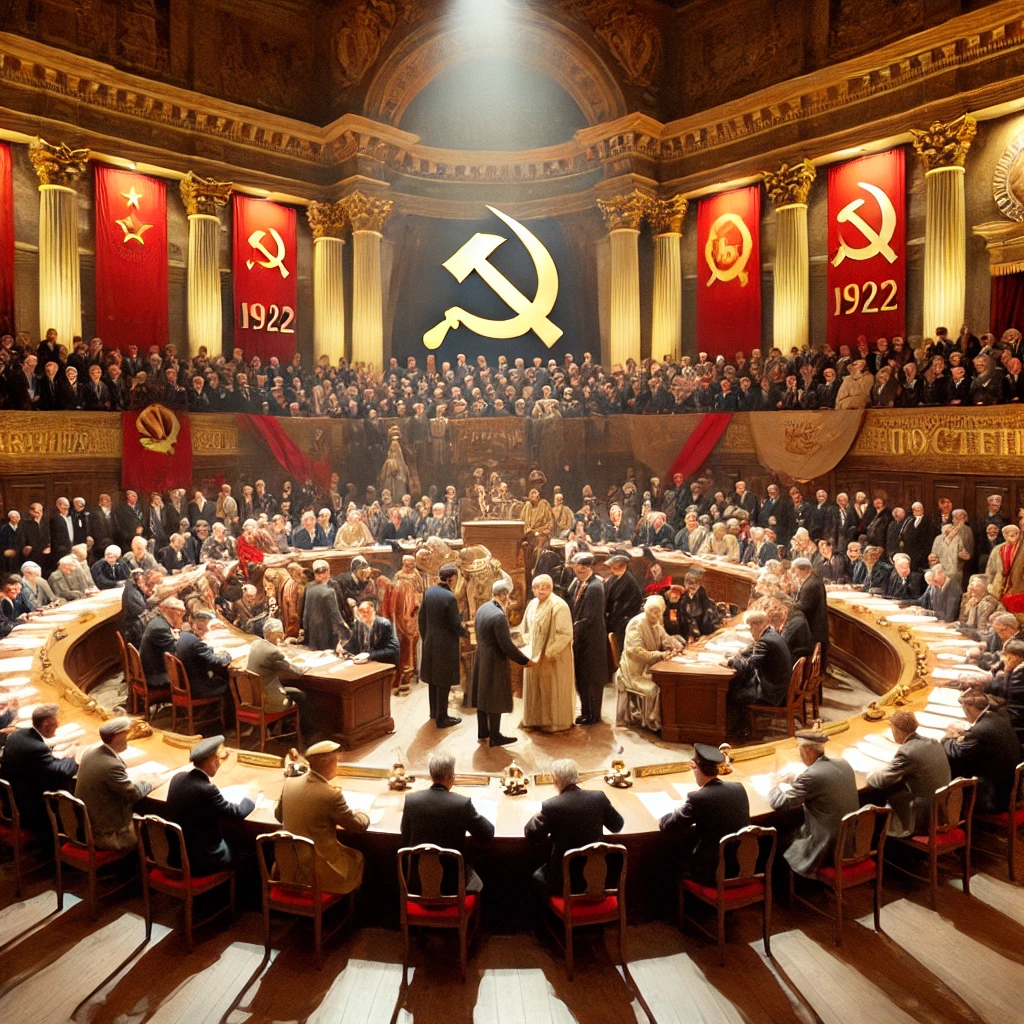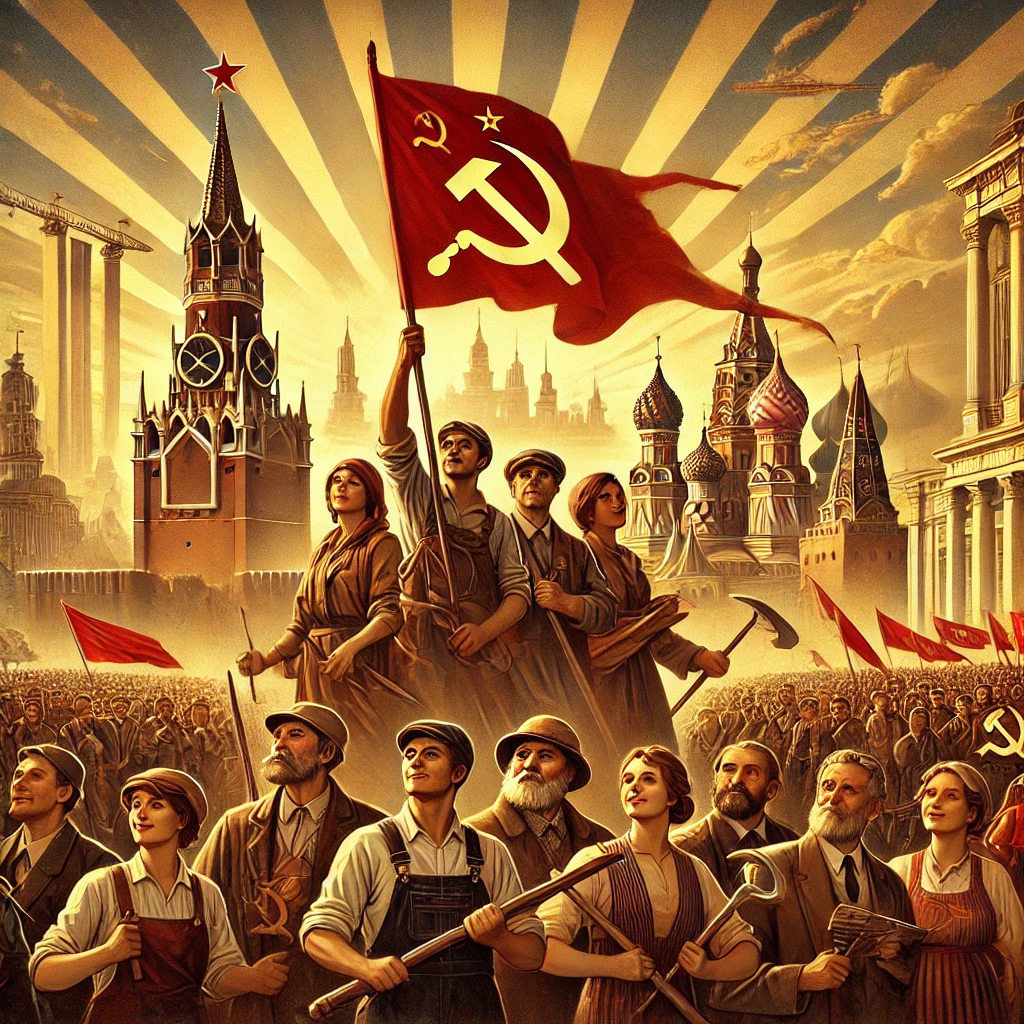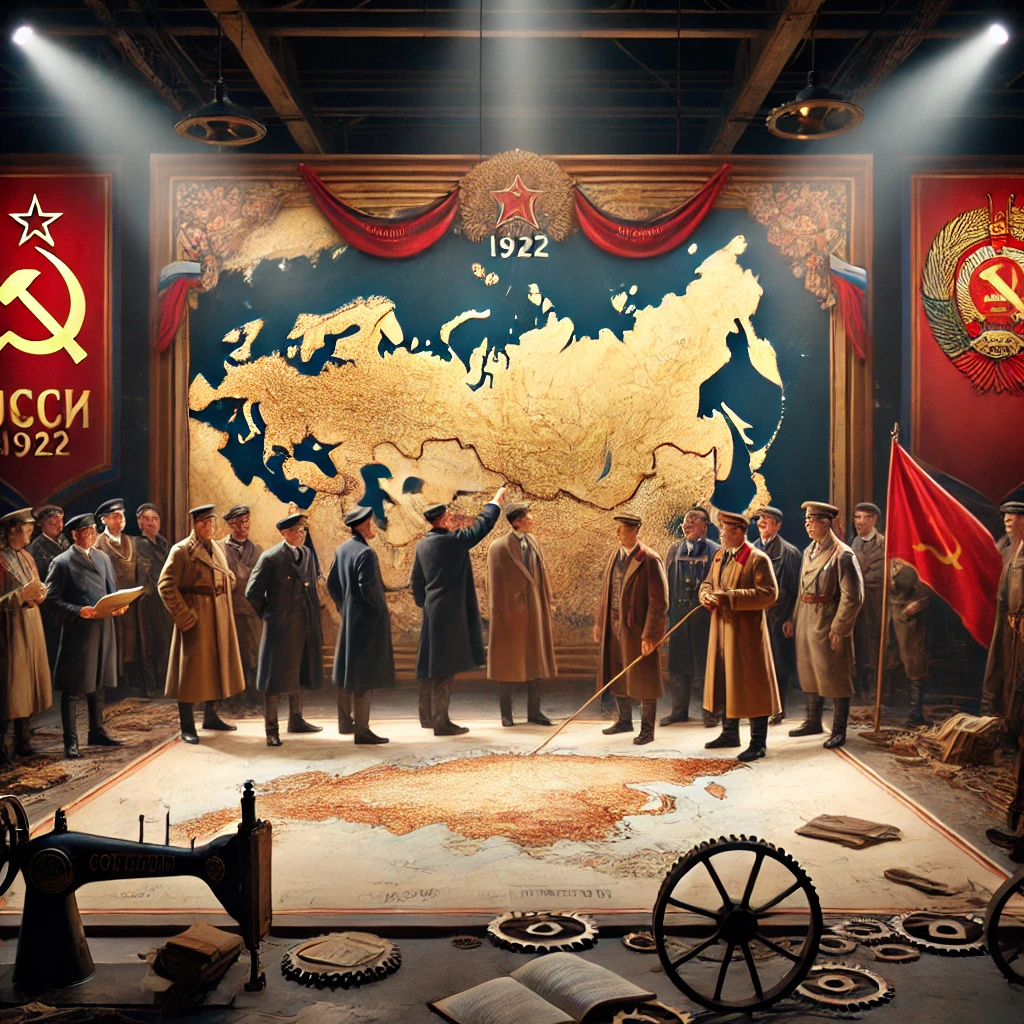On December 30th, 1922, the Union of Soviet Socialist Republics (USSR) was formally established, marking a significant shift in the political landscape of the 20th century. The union, which brought together multiple Soviet republics, was the culmination of years of revolutionary upheaval and political consolidation following the Russian Revolution of 1917. The formation of the USSR would go on to shape global affairs for nearly seven decades, influencing everything from the course of World War II to the dynamics of the Cold War, until its dissolution in 1991.

The Rise of the Soviet Union
The creation of the USSR was the result of a series of dramatic political changes that began with the overthrow of the Russian Empire in 1917. The Bolshevik Revolution, led by figures like Vladimir Lenin and Leon Trotsky, resulted in the establishment of a communist government that sought to create a classless society. The Russian Civil War (1917–1922) followed, pitting the Bolsheviks (Reds) against the anti-Bolshevik forces (Whites), ultimately resulting in Bolshevik victory and the consolidation of power under Lenin’s leadership.
On December 30th, 1922, the former Russian Empire’s republics—Russia, Ukraine, Belarus, and the Transcaucasian Federation (comprising Armenia, Azerbaijan, and Georgia)—officially united to form the USSR. The establishment of this new state marked the official creation of a one-party socialist system with centralized control over political, economic, and military affairs. Lenin, as the leader of the Communist Party, played a crucial role in the unification, though his death in 1924 would soon lead to the rise of Joseph Stalin, who would further solidify the USSR’s power and shape its global influence.

The USSR’s Role in World Affairs
The formation of the USSR had a profound impact on global geopolitics. As the world’s first communist superpower, the Soviet Union quickly became a major player on the world stage. The USSR’s ideological opposition to capitalism and liberal democracy, particularly embodied by the United States, would shape the dynamics of the 20th century. Following World War II, the USSR emerged as one of the two primary superpowers, locked in a tense rivalry with the United States that defined the Cold War.
During the Cold War, the USSR exerted influence over much of Eastern Europe, establishing satellite states and fostering a global network of communist allies. The arms race, the space race, and numerous proxy wars across Asia, Africa, and Latin America were marked by the rivalry between the US and the USSR. The USSR’s involvement in these global conflicts, as well as its policies of state control over the economy and media, profoundly impacted the lives of millions within the Soviet republics.
The Legacy of the USSR
The legacy of the USSR continues to be felt today, especially in the former Soviet republics that emerged after its dissolution in 1991. The USSR’s collapse, driven by economic struggles, political corruption, and nationalist movements within its republics, led to the creation of independent states. The end of the USSR marked the end of an era in world history, signaling the conclusion of the Cold War and the rise of a new global order.

Despite its dissolution, the impact of the Soviet Union remains deeply ingrained in the collective memory of many nations. Russia, the largest successor state, still grapples with the historical, cultural, and political legacies of the USSR, while former Soviet republics navigate their own paths toward democracy and economic development. The rise and fall of the USSR remain a powerful reminder of the complexities of ideological conflicts and the profound impact of large political entities on the world stage.
The formal establishment of the USSR on December 30th, 1922, marked the beginning of one of the most influential political entities in modern history. The Soviet Union’s formation reshaped the global balance of power, giving rise to a new ideological and geopolitical struggle that would define much of the 20th century. While the USSR ultimately dissolved in 1991, its impact on global politics, economics, and culture continues to be felt. The history of the Soviet Union remains an essential chapter in understanding both the triumphs and challenges of state socialism and its role in shaping the world as we know it today.
